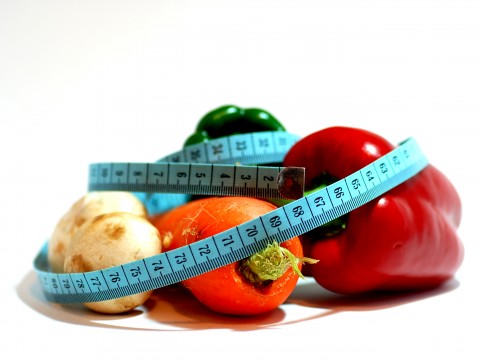Over 7 Million Women Struggle with Fertility Problems
In the United States, over 7 million women struggle with fertility problems. The inability to get pregnant is often devastating. There are numerous reasons why you might have trouble getting pregnant, but did you know that your body weight and diet can play a role in your fertility problems?

Your Weight and Infertility
A woman’s body size can sometimes complicate her fertility. You have an easier time getting pregnancy when you’re a normal weight. If your body mass index (BMI) is below 20 (underweight) or over 30 (overweight), you may have a difficult time trying to conceive. The ideal BMI for optimal fertility is between 20 and 30.
Women who are underweight (BMI less than 20) may have decreased fertility because their body fat values are too low. In order to conceive children and have regular periods, women need a certain level of body fat. If you’re too thin, you’re at increased risk of amenorrhea (absence of periods). You may have a harder time conceiving if you don’t have regular periods.
On the other hand, women who are overweight or obese (BMI higher than 30) are more likely to experience fertility-related problems due to altered hormonal problems. They are at higher risk of having irregular periods or amenorrhea. This can make it difficult to easily conceive.
In addition, overweight women may produce too much estrogen, since fat cells are responsible for producing this hormone. When you have high levels of estrogen, your body can react to it like it is birth control. You may not ovulate. All of these factors together can contribute to infertility. Losing weight may solve these problems and help you ovulate regularly.
There’s also a link between obesity and a condition called polycystic ovary syndrome (PCOS) ““ multiple cysts form in the ovary. PCOS is one of the leading causes of infertility. Diet, exercise, and losing weight may help treat PCOS and allow women to have more regular periods again.
Diet and Fertility
Eating a healthy and balanced diet is one of the best ways to get your body in shape for babymaking. Since you’re not pregnant yet, you can still enjoy all your favorite foods; however, you may want to curb back on the alcohol and caffeine.
Although studies that look at alcohol effects on fertility have been inconclusive, there has been research that found a slight link between alcohol consumption and difficulty getting pregnant. In a 1998 Danish study published in the British Medical Journal, researchers followed 420 Danish couples trying to conceive for the first time. They found that a woman’s ability to get pregnant decreased as more alcoholic drinks were consumed. Women who drank five or less alcoholic drinks a week had twice the conception rates as women who drank ten drinks a week. The bottom line: the more you drank, the harder it is to get pregnant.
The studies that examine caffeine’s effects on fertility have been mixed. Moderate caffeine consumption (less than 300 milligrams a day) doesn’t seem to harm your ability to conceive. However, if you’re having a hard time conceiving, or you’re undergoing IVF, you may want to cut out caffeine all together. Because caffeine restricts your blood vessels, it can slow down blood flow to your uterus. This can make it harder for the fertilized egg to grab hold of the uterus and embed itself.
A Healthy Diet, a Healthy Weight Increases Your Chance of a Baby
The best way to maximize your chance of having a baby is to exercise at least 30 minutes a day, eat healthy diet, and get your weight under control. If you’re underweight, aim to gain more. Overweight or obese women should focus on losing weight. Even losing 10 percent of your body fat can improve your chances of conception.
A healthy fertility diet should include whole milk, a prenatal multivitamin every day, plenty of vegetables and fruits, slow carbohydrates, lean protein sources and at least eight glasses of water each day to hydrate you.